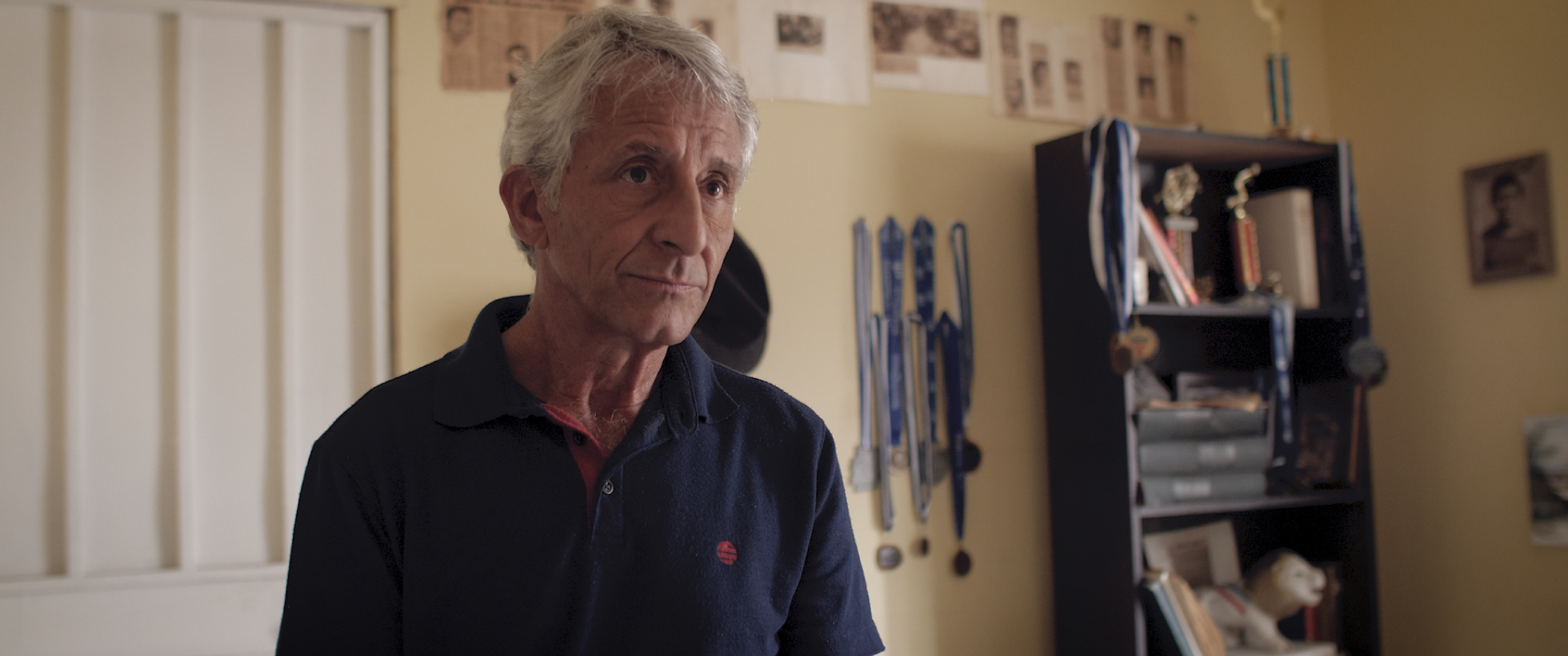Four distinct segments, bridged though soccer and addressing relevant social issues, comprise 90 Minutos (90 Minutes). The Honduran debut feature from young director Aeden O’Connor Agurcia and writer Daniel Frañó — both Tegucigalpa natives — takes its name and running time from the duration of a soccer match. “Honduran audiences haven’t seen a story like this set in our country. This is a visceral drama that talks about the struggles of Hondurans today,” O’Connor Agurcia tells Remezcla at the Miami Film Festival, where the movie premiered.
One story follows a Honduran migrant crossing through Mexico and getting into a fight over a game between the two national teams. The plot point was inspired by the second “Aztecazo” in 2013 when Honduras unexpectedly defeated Mexico at the Estadio Azteca in Mexico City. Pride for his small Central American homeland uplifts the film’s protagonist in spite of the harsh circumstances.
For O’Connor Agurcia, the second chapter — which focused on a barrista, a member of the unofficial but fervent soccer fan clubs — carried the most logistical complications. Several scenes were shot during the Honduran clásico, Olimpia v. Motagua, which has often resulted in violence because of confrontations between rival barristas. Guatemalan actor Brandon Lopez (who won a Mexican Ariel award for his role in La jaula de oro) was cast for the lead role and that meant having him spend time in Honduras to learn the local accent and jargon.

The structure of 90 Minutes — essentially short films linked thematically a la Relatos salvajes (Wild Tales) — allowed for them to be shot months apart whenever the filmmakers were able to raise the necessary money for a new piece.
“In a financial sense, making films in Honduras is very difficult because there’s no investment or an industry, but fortunately this year a cinema law is about to pass, so there will be a fund for people to make movies and tax incentives for business,” shares the director. “The good side is that since Honduras is such a newbie country when it comes to cinema we didn’t have to get permits to shoot anywhere and we could close roads because everyone was excited to help us.”
Made by a group of 10 recent college graduates in their early 20s with a Panasonic GH5 camera that costs about $1,500 and small amounts of borrowed money, 90 Minutes exemplifies, for O’Connor Agurcia, a popular, if not politically correct, Honduran saying: “No es la flecha, es el indio” (It’s not the arrow, but the Indian). It’s not about the tools you have at your disposal, but the talent of the person using them.
Another segment deals with what’s known as “extreme journalism,” sensationalist reporting that captures gruesome stories that’s broadcast on channels such HCH TV. The short narrative follows a young reporter who goes from shooting footage of a soccer practice to risking his life filming a safe house guarded by drug dealers.
Meanwhile, the closing tale is a brief character study on an elderly man who was once part of the first Honduran national team to play at the World Cup. Now a revered icon who is instantly recognized on the street, this former player struggles to find purpose and has forgotten the beauty of the sport.

According to the ambitious director, who studied film for an intensive year in Prague because there are no film schools back home, in Honduras the movies that sell the most tickets are comedies. That’s why he and Frañó felt soccer was the ideal hook to entice audiences into stories that most people wouldn’t otherwise go see in the theater.
“We realized we couldn’t make an art house film, or a film that’s too introspective or only meant for festivals because we needed to recoup the money our families invested in the film. But we also didn’t want to make a raunchy comedy. Our goal was to make something right in between art house and commercial,” notes O’Connor Agurcia.
In Honduras, like in many countries across Latin America and the world, soccer resembles a religion. For many the sport has become a beacon of joy in harsh economic times. O’Connor Agurcia sought to portray not only the negative outcomes that such fanaticism can result in, but also the power of this pastime.
“When Honduras plays at the World Cup the entire country comes together. Politicians from the left and the right, barristas from Olimpia and Motagua, the wealthiest and the poorest, everyone celebrates the same match and screams the same song,” he says. “It’s what unites our country the most, maje.”
90 Minutes will open theatrically in Honduras on November 5, 2020.
This interview was conducted in Spanish and translated by the author for Remezcla.







